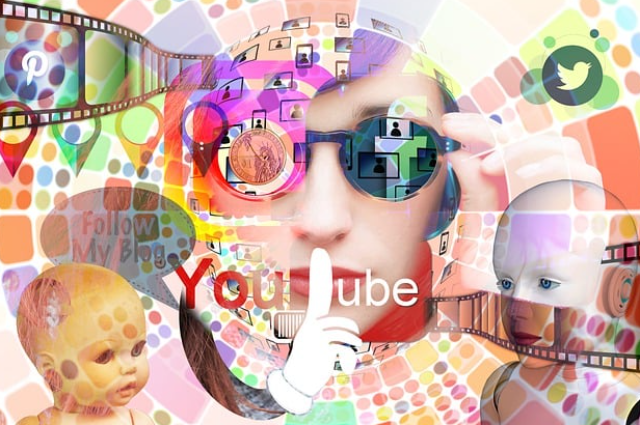
Image by Gerd Altmann from Pixabay
Introduction: The Rise of Synthetic Media
The word "synthetic" means artificial and something that isn’t genuine or authentic. When we say ‘synthetic media’, we refer to content created or modified by artificial intelligence, like video, audio, images, articles, and more. Of course, we are all very familiar with tools like Chat GPT, Microsoft Copilot, Mid journey, and Google Gemini… the list goes on! What began as editing and cropping for fun and creating memes has now evolved into an ecosystem of its own. From hyper-realistic deepfakes to AI-generated influencers, our world is now filled with content that feels too real to be synthetic. The global market for synthetic media is currently valued at $4.5 billion and is projected to reach $16 billion by 2030.
But this has gone way beyond convenience and fun. To be precise, synthetic media has crossed its limits! Well, its use has both positive and negative outcomes, but the negative outcomes, especially when talking about synthetic media’s impact on politics, are and can be devastating. On one hand, parties use AI tools and bots to spread their agenda in multiple languages. On the other hand, malicious minds weaponise AI, particularly with the advent of deepfakes.
A deepfake is Artificial Intelligence impersonating you. And not just any random impersonation which can be caught with observation, but something… or someone, who has been created digitally using learning techniques and by sharing the personal data of the person. A deepfake convincingly mimics a real person’s voice, hand gestures, body language, use of particular words, and above all, their face. You might have even seen deepfakes of popular personalities on social media. After all, the word itself is a combination of ‘deep learning’ and ‘fake’!
Deepfakes in Politics: A Disinformation Machine
Forget crypto or dollars, deepfakes might have become the new currency of political deception. From AI bots calling people in the United States to fabricated surrender speeches being spread in Ukraine, synthetic media has become a large-scale threat.
- During the 2024 Presidential election in the USA, a deepfake of President Biden showed him making inflammatory remarks. Another one of now presidents, Donald Trump, showed himself with false endorsements.
- In Brazil’s 2024 elections, at least 75 deepfakes were spread, including AI-generated content targeting female candidates.
- In Slovakia, just two days before the 2023 elections, a deepfake of one candidate surfaced on social media, wherein the candidate was shown talking about rigging the elections.
- In Indonesia, deepfakes of President Prabowo Subianto were circulated. It showed him promising financial aid in exchange for fees. This scam eventually led to financial losses for people who fell for it.
These are just a few of the incidents that have occurred in politics worldwide after synthetic media took its step in it. Some of these contents are debunked, but it is too late by then. Strategic deployment of synthetic content makes people fall prey to it, laying seeds of doubt and greatly affecting the election results. The thing with deepfakes and synthetic content is that they don’t tell the complete truth. And as you know, a half-truth is more dangerous than a lie. So much so that in 2024, a multinational bank lost $25 million to a deepfake of its own CFO. This is enough to define how serious the situation is. With much of our younger generation spending time on social media, the time is near when they will end up electing an AI bot as the president or prime minister rather than a real person!
Global Response: Fighting Back
Well, if humans created a problem, they can very well find its solution.
- In May 2025, the TAKE IT DOWN Act was passed as a law, which criminalised the publication of deepfakes, with platforms required to remove such content within two days.
- The EU AI Act mandates clear captioning of deepfake content with penalties up to $35 million or 7% of global turnover.
- Australia passed the Criminal Code Amendment Bill in 2024, penalising deepfakes and providing guidelines for people to avoid them.
- AI Detectors have been formed, like DeepID and FakeCatcher, that analyse micro facial expressions, voice patterns, and more.
- Platforms like Open eLMS offer free courses on spotting synthetic content.
But the game is far from over. Deepfakes blur the line between fact and fiction, challenging our understanding of reality. Just imagine receiving a video of your president speaking that your country has just lost the war and that they are surrendering. That’s what happened in Ukraine. Deepfakes at such critical times can create anxiety, panic, depression, and whatnot. And if this wasn’t enough, the concept of deepfakes is also being used as what’s called ‘liar’s dividend.’ Politicians often exploit the ambiguity around deepfakes, dismissing real evidence as probably fake, which leaves the general public clueless about what to trust.
Redefining Politics: The Road Ahead
The rise of social media, synthetic content, deepfakes, etc., has fractured the common man’s ability to differentiate between true and false. Political campaigns use synthetic material, clones, and simulated speeches to reach out to far-flung areas. And again, political campaigns also use such content to demean and spread propaganda against rival parties. While all this might help to get a few votes, it breaks the people’s trust. Humanity is already famous for spreading just a rumour like wildfire, and now we are living in a highly digitalised and connected world. So, you can predict the consequences of viral deepfakes yourself.
In the end, deepfakes are not just a tech problem; they are a trust problem. And the road ahead is increasingly tricky and complex unless we do something about it today. So, the next time you read or listen to some online content, sit for a while and think about its factuality and do a cross-check with reliable resources.
